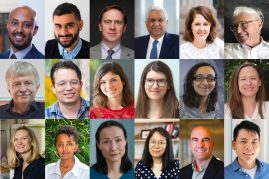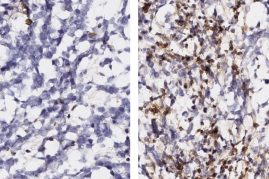Forest White, PhD

Signaling processes regulating biological response
Using mass spectrometry to perform high-resolution, quantitative characterization of the signaling networks underlying development, progression and therapeutic resistance of cancer.
Contact
Staff
Research:
The focus of research in the White lab is the quantitative analysis of protein phosphorylation events regulating signal transduction cascades associated with cancer and other biological processes. With its mass spectrometry-based technology, analysis of protein phosphorylation occurs on a global scale, allowing for quantitative mapping of complex signal transduction cascades in a variety of biological samples. Currently, the group is applying this technology to understand signaling processes regulating biological response to exogenous stimuli in a variety of cancer model systems. Although a significant amount of work will be done in human cell lines, we will also analyze signaling networks in tumors derived from mouse cancer models, with the eventual goal of analyzing staged human clinical samples. Elucidation of signal transduction cascades involved in oncogenesis, cancer progression, and metastasis will generate both novel drug targets and a host of biological markers, allowing for early diagnosis and tracking of cancer progression. A variety of other applications will be pursued, including mapping the phosphorylation events associated with development of Type I and Type II diabetes.
Biography:
Prof. White holds a Bachelor’s degree in Chemistry from Framingham State College and PhD in Analytical Chemistry from Florida State University. After two years of postdoctoral research in Bioanalytical Chemistry at the University of Virginia, he pursued a career in the biotech industry, as a Senior Research Scientist, Group Leader at MDS Proteomics. Prof. White returned to the world of academia to become Assistant Professor of Biological Engineering at MIT in 2003.

